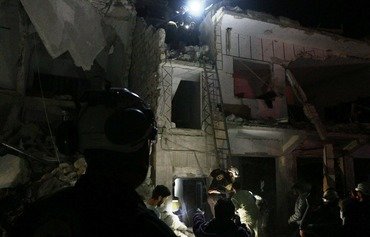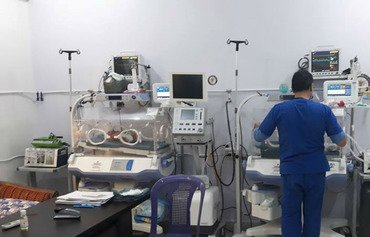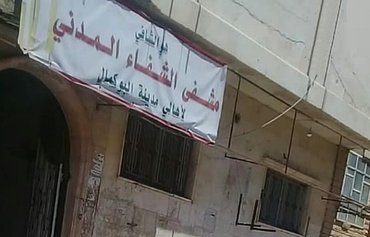Civilians in Syria's Idlib province and beyond are facing the threat of a decline in medical services with the suspension of international support to a key hospital.
Idlib's Internal Medicine Hospital provides services to tens of thousands of Idlib residents, as well as those on the outskirts of neighbouring Aleppo and Hama.
Residents fear Relief International's decision to suspend its support for the hospital will contribute to an overall decline in medical services in the region, Idlib-based nurse Osama Qanbar told Diyaruna.
The Idlib hospital is a major hub that provides comprehensive medical services and has capabilities that other small hospitals lack, he said.
![Patients await treatment at a hospital in Syria's Idlib province. [Photo courtesy of Osama Qanbar]](/cnmi_di/images/2018/11/06/15264-Syria-hospital-troubles-600_384.jpg)
Patients await treatment at a hospital in Syria's Idlib province. [Photo courtesy of Osama Qanbar]
Most hospitals in Idlib are in danger of shutting down their operations or at least limiting the services they provide, as international support is suspended for various reasons, Qanbar said.
"Among those affected is the Internal Medicine Hospital, which is the largest and highest capacity hospital, to which moderately urgent and critical cases are transferred because of its human and technical capabilities," he said.
Suspension now in effect
The suspension of support for Internal Medicine Hospital went into effect at the beginning of November, Qanbar added.
The hospital administration is trying to find a solution in order to avoid a shutdown, he said, as that would deprive thousands of people in Idlib, Hama, Aleppo, including those in displacement camps, of specialised medical care.
Imposing medical fees on patients, no matter how small, would be difficult given the dire financial straits Idlib residents face, he said.
"Most of those who come for treatment are internally displaced persons (IDPs) who can barely cover their basic expenses," he added.
Qanbar said the suspension will directly impact the hospital's ability to obtain medical supplies, diesel fuel needed for power generation and oxygen, and would affect the payment of salaries to doctors, nurses and hospital workers.
The decision is expected to force many medics and support staff to move to other areas or stop working because of the suspension of their salaries, he said.
"There is no single reason for the suspension of support," Qanbar said.
Donor organisations may be focusing their efforts elsewhere now that the ceasefire agreement is in effect, he said, while the current state of lawlessness in the province puts medical staff at risk of incidents such as kidnap for ransom.

![Medical staff in Syria's Idlib province are facing a stoppage of salaries as a consequence of the suspension of international support. [Photo courtesy of Osama Qanbar]](/cnmi_di/images/2018/11/06/15263-Syria-medical-staff-600_384.jpg)






